Regardless of your view of prepping, it is never helpful when you wind up stumbling over junk to get to the door or have to push boxes out of the way to look out the window.
While you may think creating a minefield of junk will deter invaders, the fact is you are more likely to fall over trying to manage the situation while the invader will simply shove things aside for effect. This is just one of many reasons why decluttering is so important if you plan on having a home that you can live in through just about any kind of emergency.
Why Decluttering Now Matters
As I write this, North Korea has gone back to test-firing missiles, US troops are on their way to Iran, and Russia is slowly but surely taking a stronger hold of Venezuela. There is no question in my mind that Kim Jong-Un is watching the situation in Iran closely. Over the years, I have said more than once there might be some nation in the world willing to, essentially, “rent-a-nuke” to any country or group willing to pay for such services. I also felt, and very strongly, that Saddam Hussein had purchased just such services, and then, for one reason or another, the selling country did not carry through on the deal.
It would not surprise me at all if Iran is looking to North Korea to use nuclear weapons on their behalf. Never forget that terrorist organizations and criminals don’t necessarily need to be in contact with each other to plan or negotiate. In fact, the very model for groups like ISIS is a decentralized model in which people act, more or less, spontaneously. There could be millions of channels and subtle signals in the media and right under everyone’s nose between Iran and North Korea.
What has this got to do with decluttering? Even though prepping for a nuclear disaster is similar in many ways to managing other disasters, it has the distinction of requiring some kind of underground shelter. Quite frankly, this kind of security is well beyond the capacity of most people in the United States today because they live in rented apartments, or zoning laws prohibit them from having any kind of root cellar or other underground structure.
These obstructions do not change the need for some kind of shelter for you, your loved ones, and critical supplies in order to ensure the best possible chances of survival from a nuclear strike. Since it only requires 1 – 2 feet of dirt to create a viable shield against nuclear radiation, you can still build a small earth-covered shelter in a room of your home. You will need an area about the size of a closet with as many walls between you and the outside as possible. Since you will be creating, essentially, a room within a room, it will take up some space that you may need to declutter. If you do nothing else today, choose a room in your home that might be suitable for this purpose, and start thinking about the following reasons why decluttering is so important:
Make Room for More Important Things
Aside from building an indoor earth-covered shelter, there are many other things you need room for in order to manage other disasters. If you don’t have a sustainable garden yet, then storing food now is one of the most important things you can do. No matter whether you are watching the situation on the southern border, or the weather problems that can lead to crop failures, the fact is food shortages may be coming sooner than expected. If you don’t have food supplies stored up, this is the time to make as much room as possible for this purpose.
Limit the Risk of Being a Target for Home Invaders
From police shooting civilians to massive hurricanes, it seems riots and other social disruptions have become a way of life. Under these circumstances, having things in your home that draw attention may mean you will become a target during a period of unrest. If you have valuable furniture, electronics, or anything else that might be of interest to a thief, now is a good time to liquidate it. Remember, people around you can, and often are very aware of what you have around that is of monetary value. Once they see these things exit the home, there is a chance that their thoughts of looting or robbing will also leave. No matter how bad a situation is, people will still only go to places where they think they can get something of value. If your home looks like you have nothing, then criminals may just leave you alone. At the very least, if you want to keep items of value around your home, make sure they are well hidden, or of a nature that you can pack them up and take them along easily if you need to evacuate.
Easier to Gather Items in an Emergency Evacuation
In one sense, preparing for a nuclear strike is more similar to preparing for a tornado than it is a hurricane. Before a hurricane, you may have several days of warning, as well as several options when it comes to evacuating. On the other hand, when a tornado or nuclear warhead is inbound, you may have only a few minutes to gather up a few things and head for a safe location. While having an indoor shelter can help cut the time required to get to safety, anything exposed to nuclear radiation will have to be destroyed later on. You are better off getting rid of anything you cannot take into your shelter rather than deal with losing it or leaving it behind later on.
Clear Your Mind of Excess Baggage
In crisis after crisis, media has portrayed people crying over the loss of their homes, precious mementos, and other objects. No matter how thankful they are to be alive, the loss of possessions can still create difficult and long-lasting scars. You are much better off decluttering now so that you have peace of mind later on.
A Path out of the Rat Race
Have you ever seen a neighbor come in with a box of pizza and immediately felt a craving for pizza? Even though you may not be hungry, or may not need to consume a pizza at that moment, seeing someone else with it can make ordering out for a pizza difficult to resist. In many ways, the economic rat race that is destroying us on every level is all about what other people have and getting to the same level or beyond. When you make a conscious effort to get rid of possessions, you begin to get free of these irrational demands on your mind and emotions.
Create Practical and Useful Fields of Fire
As gun grabbers make it easier for criminals to enter your house whenever they want, you can expect more and more instances of home break-ins. The last thing you want to do in this situation is to be unable to defend yourself. Remember, as useful as guns are, they are no guarantee of success. In a live-fire situation, adrenalin surges, and stress can cause you to misfire. This is why setting up clear fields of fire in your home is so important. Unfortunately, when everything is cluttered up, you may not be able to get to optimal locations easily, let alone take advantage of them. Aside from that, why give invaders a chance to hide behind a pile of junk where you have a harder time managing their intrusion on your life?
10 Things to Get Rid Of and How to Do It
Have you ever noticed that people run around buying water before a hurricane, blizzard, or other weather oriented crisis? What would these people do in a situation where water may never flow from the tap again? Even though potable water is an important resource, most people take it for granted to the point of being careless and dangerous to themselves. To add insult to injury, there is no way to stockpile freshwater without taking up a lot of space. While you may think that you can simply store away water purification tools and filters, the fact is they also take up a lot of space.
Today, there is an alarming number of threats to water security throughout the world. To begin, many rivers, streams, and other sources of above-ground fresh water are polluted to the point where they are not safe to use without using fairly robust purification methods. Rainwater is also heavily contaminated, as are many underground wells and waterways. To add insult to injury, most municipal water supplies are full of chemicals that may cause cancer; or can easily be poisoned by invaders or other hostile groups. Quite frankly, without being able to control water quality, you are in a very dangerous situation. Have a look at 10 things you can get rid of today that will make it easier to make room to stockpile water, as well as set up a custom purification system that will give you the best chance to survive a water shortage.
Old Clothes
During an emergency evacuation, you are lucky if you take along one or two sets of clothes. Having a wardrobe with enough clothes to last several months is not the best use of the room in your home. You will be much better served by narrowing your wardrobe down to no more than 7 sets of heavy garments for cold weather, and 7 sets for warmer weather. Choose clothes that will last a long time, and will also withstand rugged conditions. If you are a slave to fashion, then reserve one spot in your wardrobe per year to buy something new; but be sure to get rid of something else at the same time. Today, there are many second-hand stores and charities that will take old clothes. You can also keep an eye out for clothing drives, or community-based fundraiser yard sales where you can sell these items.
Broken Tools or Appliances
I must admit to having a few burned-out blenders and other gadgets laying around that I may fix someday. The fact is, if you didn’t take it apart when it stopped working or failed to fix it at that time, there is no point in holding onto it. Even if you have 15 devices that take up 1’ x 1’ x 6” of space each, going through them at a rate of 1 per day will clear 15’ x 15’ x 7 1/2’. That space can hold quite a bit of water or almost half the space for indoor nuclear shelter. Now is the time to scavenge out any usable parts, and throw the rest of the device away. If there are limits to how much you can throw in the trash, look for free community programs that accept old electronic devices.
Plain Junk
The list of items that fall into this category is absolutely endless. Over the years, I have found everything from old paper towel tubes to bits of stuff purchased in the dollar stores for some long-forgotten projects. As with broken tools and appliances, if you didn’t use the items right away, there is a very good chance you never will. Getting rid of junk items may be as simple as giving them to someone that might actually have use for them. Crafting supplies might be accepted by children’s after school programs, senior citizen centers, or other places that are always looking for these kinds of things. While much of your junk may simply have to be discarded, other stuff can still be given to groups that may have a use for it. Unless the item has increased in value or is highly sought after by some kind of collector, I don’t recommend wasting time trying to sell it, as the competition is too heavy and you will not get enough to make it worth your while.
Items that Have Been Damaged
Many years ago, I purchased a beautiful touch lamp, only to have a boisterous puppy knock it over. Of course, two of the glass panes in the lampshade broke, as did the base of the lamp. While I was not happy about throwing that lamp out, there really wasn’t any question that it was damaged beyond repair. Today, many people have attics, cellars, and garages full of items that are semi-broken but haven’t been discarded. All of these items take up valuable space that you can use for other things. Rather than distress over the money, you spent on the item, or its “sentimental” value, you will be better off throwing these items out. Alternatively, if you know someone that makes a hobby of repairing these things, or has an interest in them, you can always donate your damaged items to them.
Items that Can be Sold or Liquidated
Even though it may sound easy, this is actually the hardest category of items to get rid of. Let’s say you have an old box of record albums in your cellar. As you browse through them, you may realize they are in good condition, and may just be collector’s items. Now let’s say you do some research and find out that you have a few that are rare, or highly sought after on eBay. While you may get lucky and have someone purchase the item fairly quickly, it may also take months for someone to even look at your offerings. When choosing items that can be sold or liquidated, you need to look at the space they are taking up as well as the amount of time and effort required to find a buyer. Remember, even if you go through a third party seller, you will wind up paying commission fees. You might be better off organizing a community yard sale, or some other venue to sell off these items at a slightly lower price rather than waste time trying to get the maximum value for them.
Brush or Overgrowth in the Yard
Even though I love the way nature arranges trees, brush, and other forms of plant growth, I don’t love the problems that come with it. This includes people hiding in the undergrowth in order to plan a break-in or for other harmful reasons, as well as insects and vermin that carry diseases. If you are going to be ready for a weather-related disaster, the last thing you will want is for a tree to fall on your home, garage, or vehicle. In a similar situation, the brush can easily uproot and breakthrough glass windows or cause other kinds of damage. Today, many people cannot afford to pay a landscaper to clean up the yard. You can still do the job a little bit at a time. Start off with just an hour or two each day and do what you can. It does not matter if you start off by pulling a few weeds or uprooting a single shrub. What matters is that you do a little bit each day continue to make progress. Once the yard is clean, you will have more room to set up a garden, install a surveillance system, or use the space for other purposes.
Anything that Reminds You of Bad Times or Situations
No matter whether a relationship ended badly, you got fired from a job, or something else went wrong in your life, there are bound to object that reminds you of those times. Even though the item may be of some use, or have some value, you may be better off getting rid of it. The fewer items you have around you that bring back bad memories, the better chance you have of looking forward with a positive outlook. During a crisis, keeping an eye out for opportunities and positive motion forward are two valuable skills that can make life-saving differences in the choices you make as well as how you approach any given task. Getting rid of these items may be as simple as throwing them in the trash, taking them to a second-hand store, or selling them off at a yard sale.
Some Things You Might Leave to Others
When you have something of value, you may also think about who you would want to own it if you pass on. A number of these things, such as jewelry, artwork, or photo albums may not make it into your bug out bag, let alone an emergency evacuation vehicle. Rather than wait, this may be a good time to give at least some of these items to someone that you were planning to leave them to. Remember, small items that you aren’t going to use or take with you are likely to be lost or stolen during a major episode of social unrest. Unless you need them or have other plans for these items, it is best to rehome them so that you can use the room they take up for other things.
Items You Would Not Take Along on an Evacuation
With the exception of the building you live in, just about anything in your home that is left behind is not likely to be there when you return. While you may be considering storing items in a rented shed, these places are likely to be looted simply because no one will be around to stop the theft. Overall, it will take time to downsize to a point where your possessions are limited to what you can carry away during an emergency evacuation. It is well worth the time and effort to get rid of anything else that is excess. Books, photos, and other paper-based items can easily be digitized if you have a scanner attached to your computer. USB drives, and even external hard drives that can be attached to a tablet or laptop take up very little room, yet can literally store away an entire library. The best way to get through this kind of decluttering is to choose 10 items per week. It doesn’t matter what they are, or how big they are. If you can’t sell or give them away by the end of the week, then throw them out. As with yard work, the key is to do a little bit at a time and stick to it.
8 Questions to Ask When Evaluating “Difficult Items”
While the media pretends otherwise, many people today are skeptical of the idea that humans are causing catastrophic climate change. These very same people do not necessarily deny that massive changes are happening, and claim that they are being caused by cycles that are perfectly natural for this Earth. Let us not forget that those “natural changes” brought on the ice age, the dinosaur age, and more than one mass extinction. Regardless of why climate change is happening, the fact remains we must do what we can to ensure that we survive it, and generations beyond our own. This will not happen if we continue to waste time at the personal level arguing over why climate change is happening. Rather, we must all do what we can to prepare for a day when commercial electricity, a commercial fuel, and many other items we take for granted will no longer be available.
Many people that are interested in achieving an off-grid life in cities, towns, and apartment dwellings have many obstacles in the form of laws that prevent them from taking sensible actions aimed at generating power at home, water capture systems, and unfettered access to guns and ammunition. Along with making sure that politicians that adhere to these platforms do not get elected, or are recalled immediately, it is also important to prepare space for a time when you may need to generate electricity on your own or engage in other activities that you may not be able to do right own. Invariably, as you go through the decluttering process, you will find many things that you think about getting rid of, but for some reason, can’t bring yourself to do so. Here are 10 questions that may help you along:
Would I Be Upset if This was Lost in a Fire/Flood, Tornado, etc?
If you look around the room you are in right now, there are probably dozens of things that you rarely pay attention to. In fact, well over 1/3 of the items in each room may not matter all that much, yet you keep them around simply because you have gotten used to them. Now is a good time to get rid of those items and replace them with things that will help you survive a disaster.
Would it Matter if Someone Stole This?
Given the increase in crime rates paired with decreases in the right of homeowners to defend themselves and their property with a gun, this is a question you should be asking very seriously. Any item that has meaning to you should either be copied or placed in some kind of safe where it will be harder to steal. Unless you need an item for managing daily needs, it is best to limit your possessions only to the things that matter most.
Do I have a Use for it in the Next Year?
As you look through various items, make a list of each thing you aren’t necessarily planning to get rid of, what you plan to do with it, and when you plan to do it. If the planned usage date is more than one year, it is best to discard the item now. Remember, paints, glues, and many other items can dry out or become useless over time. In a similar fashion, fabric, plastics, yarn, and many other materials you may be storing away may develop dry rot or other problems that make them useless after just a few years. Keeping items of this type to a bare minimum and eliminating then now will help you streamline your stockpile and also ensure that you choose better in future purchases.
If the Object is Broken, How Much Would it Cost to Repair It?
There is a big difference between a blender with a burned out motor and a rototiller that needs a new carburetor. Since the cost of repairing a blender may be more than buying a new one, you are better off simply throwing out the old one. On the other hand, a rototiller may be worth repairing. It all depends on how much the parts will cost, and other problems that the device may have. Along with the cost, you must also be aware of when you actually plan to do the repairs or have them done. If the item is taking up a lot of room, you don’t plan to make the repairs, or you aren’t planning to use the item within a year, it may still be better to get rid of the item and put the space to better use.
How Far Along is the Item in its Useful Lifespan?
Consider a situation where you recently upgraded the printer on your computer. Unless the old printer has a reusable cartridge system or something else that makes it valuable to keep, you may be better off finding a new home for it rather than keeping it around. While it makes sense to hold onto some items for a few months while adapting to replacements, there comes a time when usable items need to be gotten rid of so you can use the room for other things.
Is There Something Else I want Instead of This?
Let’s say you have an old crockpot sitting on a shelf. Even though it may still work perfectly, you may now use a bigger or smaller one that fits your needs better. Now think about what you would rather put in that space. While getting rid of an unwanted, or less wanted item will not guarantee you have the money to buy something else to put there, at least you will be taking the first step to making room for something better. This question is also very useful when it comes to evaluating new purchases. For example, if your clothes closet or kitchen cabinets pose a challenge, think about what you would rather have instead of what you are looking at. While a dollar or two impulse spending may not seem like much, you would be amazed at what it adds up to in terms of wasted space and money that could be put to other uses.
Is There Someone That Can Use this More Than Me?
Any item that hasn’t been eliminated by this question may well be something you want to keep. Or, it may be something that you know you should get rid of, but are still holding onto because it doesn’t feel right to discard it. Let’s go back to the crockpot sitting on a shelf. You may already know that you have absolutely no plan for using that crockpot again. In fact, you may have already gone through three or four other crockpots rather than start using it again. Regardless of how little use you have for the crockpot, someone else may find it of immense value. For example, a neighbor that is looking to prepare cheaper meals may put it to good use. Not only do you have the satisfaction of clearing out that space, but you can also feel good about not carelessly throwing out something that has value.
Excluding survival-related items, if I could Only Choose 10 Things to Take Under Order of Evacuation – Would this be one of them?
From piles of empty notebooks to frying pans that haven’t been used in years, most items in your home simply won’t make the list of 10 items you would never leave home without. Even if you don’t get rid of these items immediately, it does help to set a date by which you will either find them a new home or discard them.
Prepper Uses for All That Cleared Space in Each Area of Your Home
Over the years, I have been amazed more than once when I am left with less than 10% of what I had before decluttering. Chances are, you will find that you can easily discard at least 50% of the items you have around you right now, and then get rid of another 30 – 40% with just a bit more effort. While you are clearing out all of this space, here are some things you may want to consider doing with it that will give you a better chance of surviving a major emergency.
The Kitchen
Empty cabinets are the perfect place to store canned food and water. Just make sure they have good airflow and that you can control moisture levels. Replacing solid doors with fireproof fabric can make it easier for cats to go after vermin as well as make it easier to prevent insect infestations. Remember, any place you have food or water is likely to draw insects, mice, and other creatures. When planning how to use freed up space, do not forget to take into account controlling and avoiding these problems.
Bathroom
Since bathrooms are usually closer to the center region of a home, they also tend to have the most walls between them and the outdoors. As such, bathroom closets and the bathroom itself may be a place where you would go during a tornado. You can store some items here that would get you through about 2 weeks of a major crisis. Do not forget to stock air masks and other items that you might need during that time.
Bedroom
A master bedroom is usually the largest or second-largest room in the home. This is the perfect place to store a tent or any other items that you would use during extreme cold or other conditions where you need to conserve fuel and energy as much as possible. If you upgrade the windows and doors, it may also serve as a room where you can keep more valuable items.
Spare Rooms
You can turn spare rooms into panic rooms, stockpile rooms, growing a garden indoors, generating electricity, or purifying water. Once the space is available, you would be amazed at the number of ideas you will have for using it. If the spare room happens to be near the center of the home or has more than one wall between it and the outdoors, it may also be a good room to turn into a nuclear fallout shelter. Just make sure the floor is properly braced so that it will be able to accommodate the extra weight of the earth piled on the walls and across the ceiling.
Living Room
If you usually have people visiting your home, there may not be much you can do other than keep it as empty as possible. That all being said, having some extra space in an emergency can also be very useful. At the very least, if anyone trying to break in would have to go through the living room to get to other rooms, you can set up your field of fire zones and practice defend it.
Attic
If your attic is unfinished or does not have electricity, heating, or cooling, you will need to resolve that after decluttering. An attic can be used for any purpose you would use a spare room for. It is also important to store away at least some supplies in the attic in case you need to go there to escape a flood or other situation that prevents you from using the lower levels of the home.
Cellar
If you are fortunate enough to have a dry, cool cellar, it may be the perfect place to store away food, and anything else that will last in these conditions. If not, you will be well served by making the cellar into a room that you can inhabit for at least 2- 3 weeks if needed. A cellar makes an ideal nuclear fallout shelter, as well as a shelter for many other emergencies. Among other things, make sure you have at least 1 – 2 feet of soil covering the ceiling as well as all the way around the basement, as well as a means to purify any air coming into the area.
Porch
Right now, you may not give much thought to all the space you may be wasting on your porch. This area can be enclosed for container gardens, as well as for housing surveillance equipment that can be used to overlook the yard. In a time of need, you can also use a tarp and other material to close off a porch and live there if the rest of the house is unliveable. No matter whether the rest of your home is damaged by fire, flood, or other events, your porch may just survive.
Garage
If you think of your garage as a second house, then you will be well on your way to seeing how you can use it for managing an emergency. A garage with electricity, running water, heating, and cooling is more than worth putting your money into. Since garages are usually built right on the ground, this may also be a good building to partition off for use as a nuclear shelter. While you will still have to get to the garage before the radiation hits, it is still better than trying to dig a hole in the ground or trying to reach a shelter that is not located on your property. Do not forget any nuclear shelter should have at least 2 weeks of food and water, as well as the means to maintain hygiene during that time.
Yard
From windmills, solar panels, gardens, and trees, there is no end to what you can do with a clean yard. Just remember that if zoning laws prevent you from keeping water capture equipment, gardening on your front lawn, keeping chickens, or engaging in other important activities, it is up to you to vote out politicians that support these laws. As we saw recently in Florida, laws against things like gardening in your front yard most certainly can be overcome. The only time government will work for you is when you actively take part and speak up about what you want. When you fail to do this, others who have interests different from yours will get what they want instead.
It is very easy to watch the news these days and realize that we are in for some very bad times. Whether we wind up dealing with a single problem like food shortages, or a convergence of events that include geopolitical issues and nuclear war, there may be less time left than expected. Today, the average person has a home, garage, and maybe even multiple storages shed filled with junk. In a major emergency, none of these things will matter. Decluttering today means you can have room for food and other essential items that will be needed to help you survive an emergency. The sooner you start this process, the sooner you will also be on your way to living a life that gives you satisfaction and a sense of confidence instead of one filled with junk and old habits that serve little if any purpose.


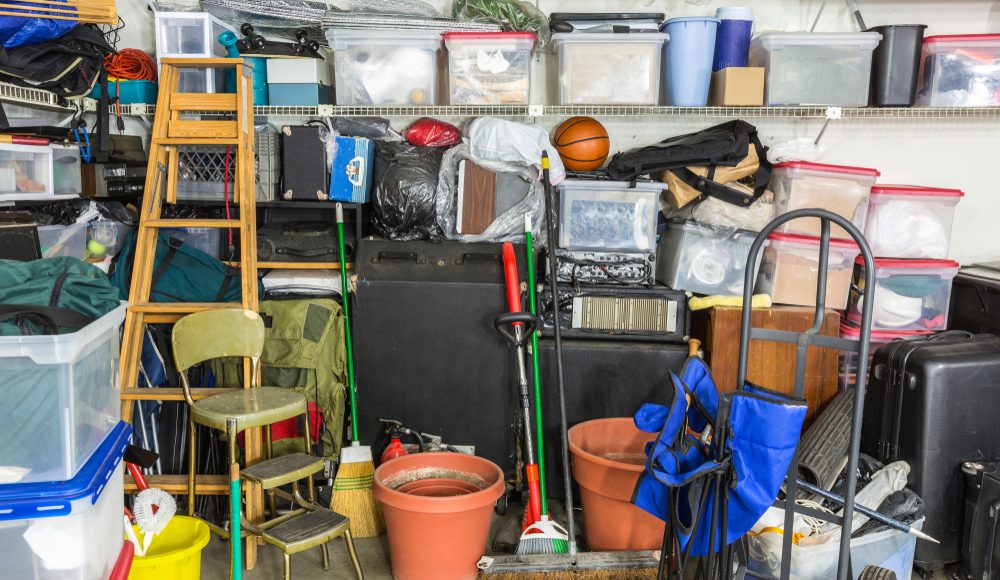

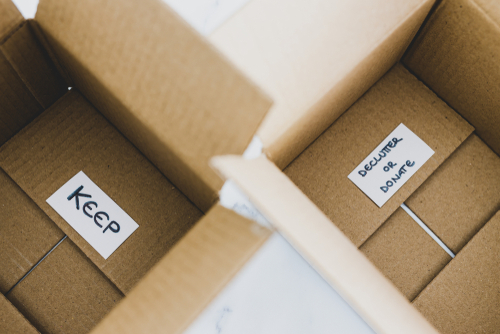
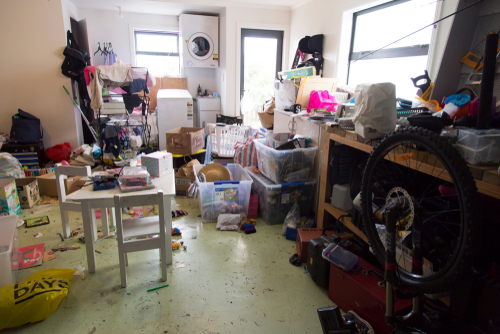
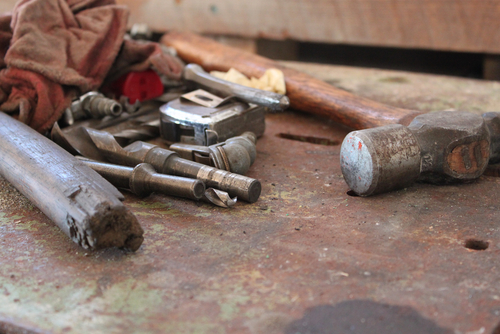
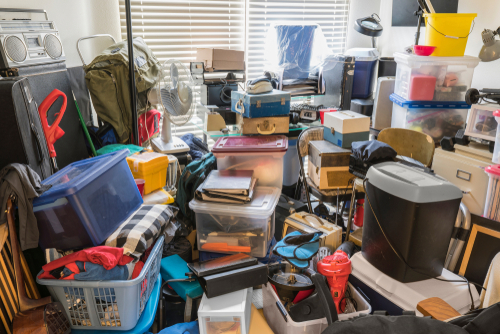

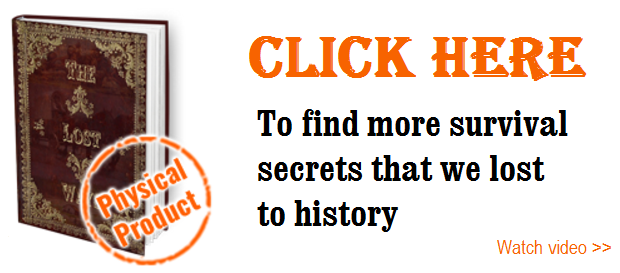
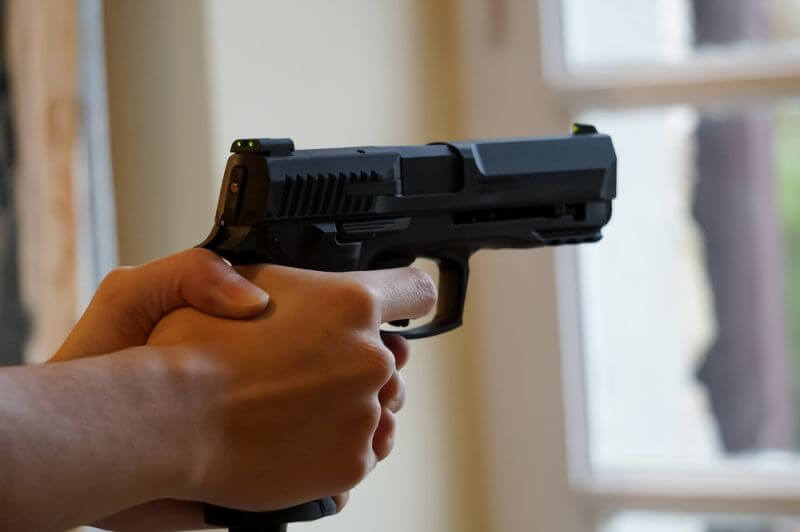
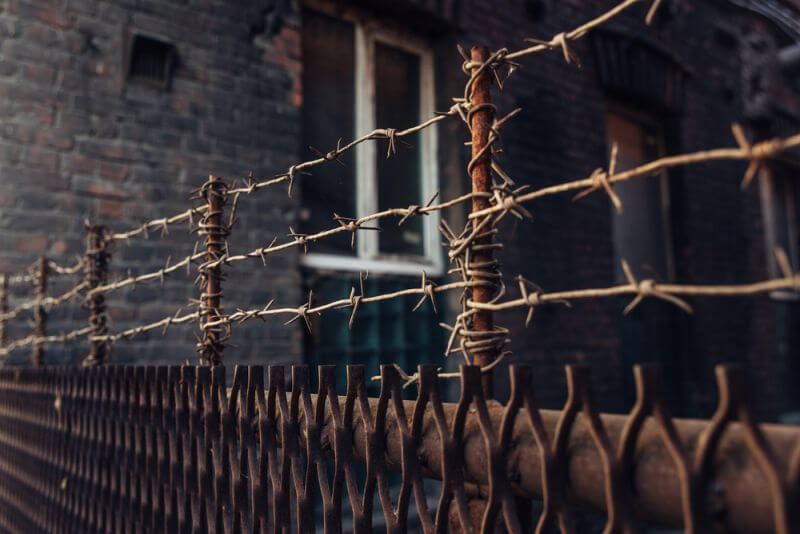
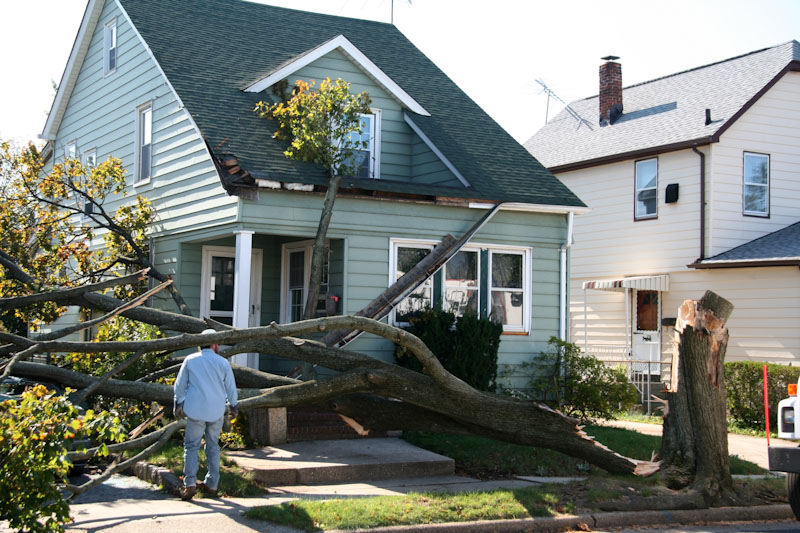


Joyce Johnson | October 18, 2020
|
Thank you so much, I have clutter and what an inspiring article. I am new to de-cluttering and learned A LOT here. I loved this article. Thank you!
Walter | October 20, 2020
|
Where did you hear US Troops are on their way to Iran???